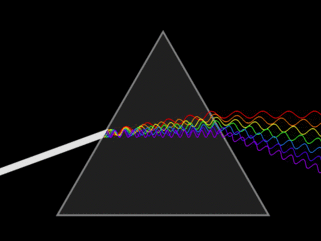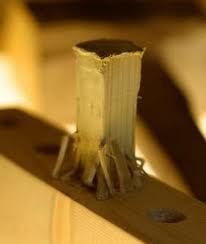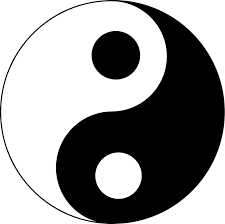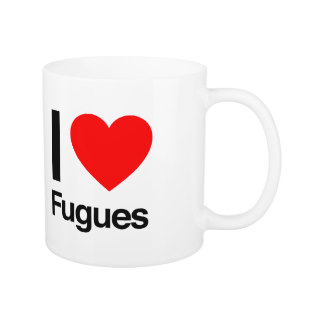

- Details
- Hits: 2920

I have been asked several times to explain what is colour in music. Simply put, colour is the sounds you hear in a piece of music that are in addition to the individual notes and instruments. Many music theorists refer to this as timbre, but I do not. Musical colour is experiential; that which can be felt and heard viscerally and physically. Musical colour is the way notes interact with one another. Scientifically, much of this has to do with the way the harmonic series works. On a listening level, colour can be described as the waves and resonances of interacting sonorities. This is why a piano is more than just a series of buttons and why the "touch" of different pianists sounds distinct and unique. A piano piece or chord can growl, roar, whine, ring, chime, shimmer, glow and flow right through you. Waves of harmonics pass, fluxuate and change constantly even in a static note. Close your eyes, and feel them sparkle in all of their magnificence and dynamic intricacies. There are never enough listenings of the same work to experience them all. The experienced composer knows and feels all of this profoundly. They write all of this into their works on both a conscious and subconscious level. This is why in only two well composed notes, there are hundreds of things to hear, to experience, to feel and to listen to. This world of musical colour is magnificent and infinite, and it does so pain me that so few ever fully experience the utter magnitude and splendor of it. This subtle and often invisible world of musical colour is the vastest element in the musical universe.
- Details
- Hits: 2970

I realized that I was "different" in elementary school. I also learned early on how most people react to and treat those who are different. In my case, different means being a man who is extremely sensitive, empathic, and profoundly creative. As a boy, I experienced the full wrath of what happens to people who experience, interpret and interact with the world in a way that is vastly different from the collective. It is only natural for the young boy who experiences the laughter, the bullying and the ridicule to shut down and destroy their own uniqueness as an act of self-preservation. Somehow though and much to my own surprise, my uniqueness, sensitivities and creativity survived the seemingly endless years of onslaught relatively intact. To this day however, I am always mindful of the power and danger of the collective and its ability to obliterate that, which is most precious and unique in both the world and in myself. I don't understand why humanity is so quick to stomp on its most precious, rare and unique flowers so brutally and so instinctively. Why this propensity to destroy and to pound in the square peg with the greatest of force and indifference? And so, to protect myself from a very real threat, I carved out a mask for myself. One of strength, dominance and masculinity combined with an unassuming appearance; hiding in plain sight amongst the wolves. A lamb, so cleverly disguised as the alpha wolf in the pack.
- Details
- Hits: 3079

While the composer's musical output can be kaleidoscopic in colour, variety and nuance, his/her inner world functions as Yin and Yang. That is, only in the extremes of light and darkness. There is no colour, there is no grey. In our mortal world, the creation of passionate, inspired and well-crafted musical works is one of the greatest manifestations of the light. However, the equally powerful darkness cannot be denied. This means that the greater the expression of beauty and inspiration in music or in art, the greater darkness will manifest itself within the composer or artist. There is a price to pay. This is why so many great composers either mentally implode or manifest ugly traits, quirks and behaviors. I struggle with this myself. The temperamental composer is not a horrible person, evil, selfish, narcissistic, egotistical or arrogant; none of those in fact. We simply are being ripped apart on the inside every minute of every day by frightfully powerful forces. The darkness must be released in one way or another. Containment and internalizing this opposite energy often leads to madness, and even death.
- Details
- Hits: 4032

I have always enjoyed every aspect of Counterpoint. In our modern world awash in harmonically vertical oriented music from every hidden corner, the Fugue, the Fughetta and the Invention offer an escape from the ordinary. The Fugue is an old art form that some believe reached its height in the Baroque (J.S. Bach being the obvious example). Of course, a large number of the most revered Romantic and Impressionist Composers also wrote quality fugues. In the 21st century however, where plurality and a rejection of formalism and objective standards is the normative, what place does the fugue have in the heart and mind of the modern composer? In an age where anything goes, are the formal conventions and procedures involved in writing a fugue too limited and constraining? I have found the very opposite to be true.
For me, composing a fugue is a free, spontaneous and natural act. The fugue can provide clarity to the composer in that the constraints and limitations placed upon the use and selection of materials can be liberating in the profoundest of ways. Unlike other musical forms, an otherwise daunting blank stack of staff paper is no challenge or threat to a fugue and its composer companion. The blank sheets instantly become a full and rich tapestry immediately upon composing only the first single note. And even if a wrestling match breaks out in making the different lines of the fugue cooperate with one another, there is never a loser. Every line wins equally and every line is appreciated, as does and is any composer who fully embraces counterpoint and the fugue in his/her heart. And in our modern musical world without rules, nothing can be more satisfying now and then, than to have a few rules to rebel against and to break, even if those rules are the ones we knowingly place before our own eyes. I feel it would be a shame for any dedicated composer to not experience such joy.
- Details
- Hits: 3306

How is it that the fire in people's hearts grows dim? Why is it the music fades, then grows silent, and the sparkle in people's eyes turns dull and sunken? This darkness has enveloped the modern man and modern woman. As a composer, whose inner world still lights up in the occasional brilliant erratic outburst, I watch the life in the eyes of the strangers I pass by and the people around me grow sullen and dim. Many would blame this epidemic that is the death of our inner worlds on external factors. Surely it must be Government, those women, those men, family, my husband, my wife, my job, my boss, the economy, the rich and big corporations causing this despair and despondency; this loss of self and freedom. I however, have a different understanding of the problem. The light in our eyes grows dim when we hand away or abandon our creativity, individuality and inspiration for foolish reasons. So many perform this great sacrifice and self-destruction for others, for material things, or worst of all, in the name of the common good and collective interest. The music inside each of us goes silent only when we willingly give it away. And the great tragedy is that almost all who perform this deliberate act trade their inner candle for the most trivial of trinkets, or for nothing of value at all. We can and should blame only ourselves when we willingly commit to a life amongst the shadows and lost faces. I can think of very few reasons grave enough to warrant the sacrifice. For those who now live in the dark fog that is our modern predicament, I invite you to reclaim what is rightfully yours - your birthright. It is time to make music once again; your music. Let's make it together my friends.
More Articles …
Subcategories
Page 1 of 2
